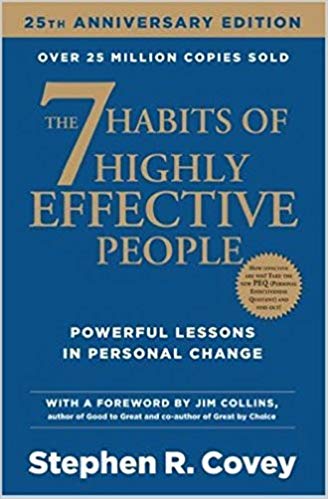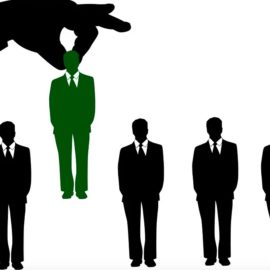

This article is an excerpt from the Shortform summary of "The 7 Habits of Highly Effective People" by Stephen Covey. Shortform has the world's best summaries of books you should be reading.
Like this article? Sign up for a free trial here .
As humans, we have the power of self-awareness, which means we can think about our own thought processes. You are the master of your own destiny, and you can examine your behavior and your thoughts, and that ability gives you the power to change your behavior and thoughts by making or breaking habits.
Creating a self-paradigm will enable you to recognize your behaviors, and form a concept of yourself based on your values and principles. You self-paradigm should be a part of how you interact in relationships and with your own problems.
Developing Your Self-Paradigm
In every situation, you have the choice of being reactive or proactive. If you’re reactive, you let your habits and conditioning dictate how you respond to the people and circumstances around you; if you’re proactive, you decide how you’ll respond to create the results you want. Being proactive requires you to take responsibility for your actions and their consequences, but it also empowers you to take hold of your life and make significant changes to your mindset and behavior. Remember, you are the master of your own destiny and only you have the power to do this.
We can rise above our moods, thoughts, and feelings, and make deliberate choices about our views, actions, and attitudes. Most importantly, we can create our self-paradigm, which dictates how we see ourselves.
When you become aware of how you see yourself, you can also recognize that the way others see themselves and the world around them greatly impacts their words and actions. This understanding of your self-paradigm allows you to relate to people on a deeper level. If you don’t have this awareness about yourself — and, thus, about others — you will misinterpret other people’s behaviors and project your own intentions and motivations onto them.
Your self-paradigm is the most critical paradigm in impacting your effectiveness. If you don’t create your own self-paradigm, you’re left to piece together a self-image that’s based on the opinions and feedback you get from others. Unless the people around you have cultivated their own self-paradigms, their reactions toward you are more likely to be projections of their own thoughts and fears than a true reflection of who you are; this can leave you with an inaccurate and disjointed image of yourself, which can cause you to behave in dysfunctional and ineffective ways.
If you don’t choose your self-paradigm and the people around you — or society or systems — are telling you that you’re not talented, have no value, and can’t possibly escape your circumstances, then why even try? You’re likely to submit to that self-fulfilling prophecy and resign to the lifestyle and level of success they say you can achieve. But you are the master of your own destiny. But if you make a conscious choice to reject their opinions and decide for yourself what’s possible for you, then your efforts and actions will reflect that.
Being proactive is all about your power to be the master of your own destiny. As you better understand the concept of paradigms, and your own self-paradigm, you can begin to recognize your own paradigms, or “scripting,” and how they’re shaping your life. Once you realize you have a choice in rewriting these scripts, you can determine what principles and values you want your paradigms to reflect.
———End of Preview———

Like what you just read? Read the rest of the world's best summary of "The 7 Habits of Highly Effective People" at Shortform . Learn the book's critical concepts in 20 minutes or less .
Here's what you'll find in our full The 7 Habits of Highly Effective People summary :
- How to prioritize the hundred tasks you have to focus on the one or two that really matter
- The right way to resolve every disagreement and argument
- How to avoid burning out and succeed over 20+ years






